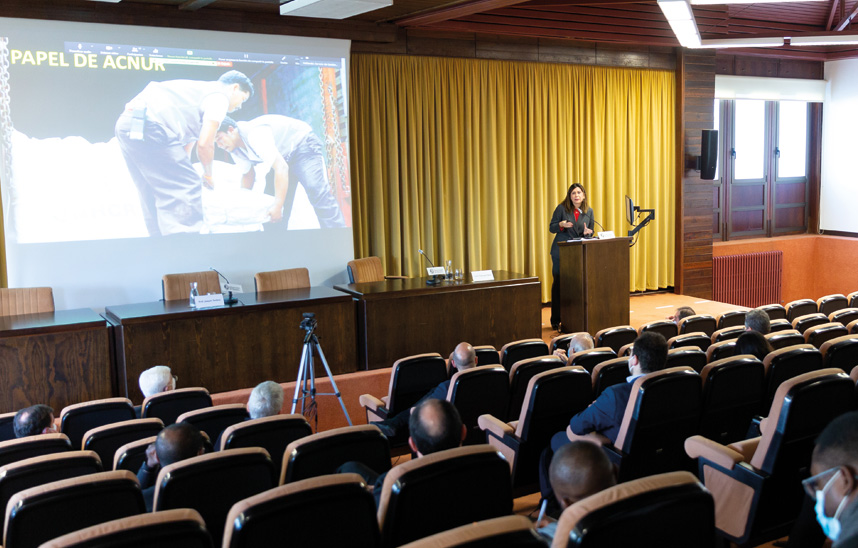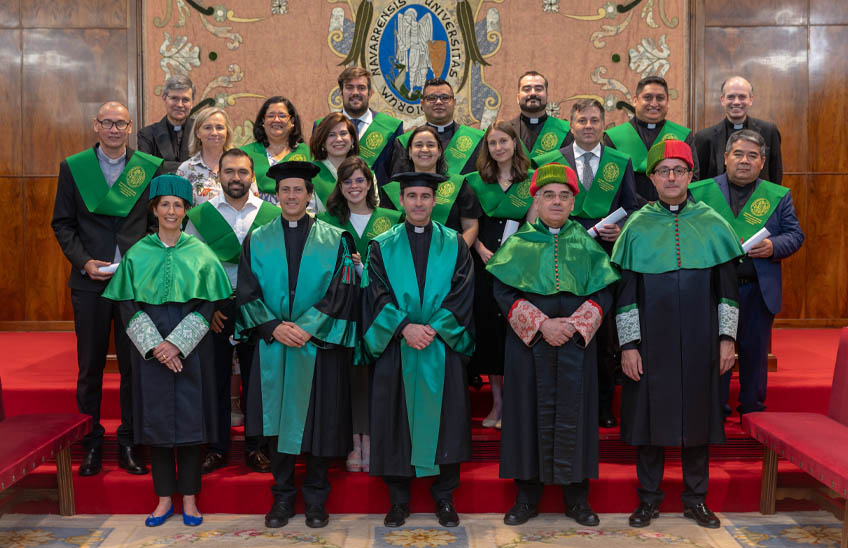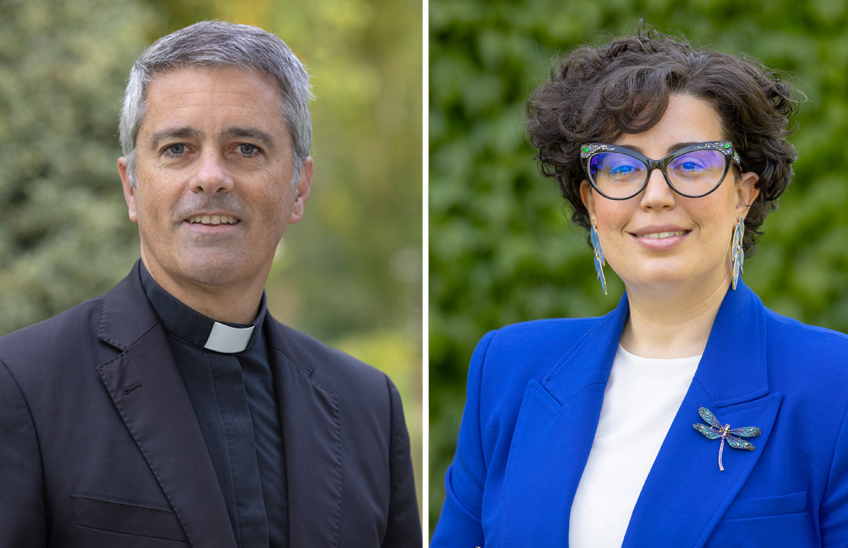An expert in asylum law and religious freedom calls for in-depth reflection on the legal concept of vulnerability
Francisca Pérez-Madrid gives a lecture at the University of Navarra, lecture focusing on cases of religious persecution and sexual orientation.

FotoManuelCastells/Professor Francisca Pérez Madrid gave the lectureof the workshopAcadémica on the occasion of the Feast of Saint Raymond of Peñafort.
31 | 01 | 2022
Professor Francisca Pérez-Madrid, Professor of State Ecclesiastical Law at the University of Barcelona, stated at the University that it is necessary to carry out a profound reflection on the legal concept of vulnerability. Her words are part of the lecture which she offered at the School of Canon Law on the occasion of the celebration of the feast of Saint Raymond of Peñafort.
The discussion paper focused on "Asylum in cases of religious persecution and sexual orientation. A comparison". Professor Pérez-Madrid stressed that there are 70 million forcibly displaced people in the world, of whom only 3.5 million apply for asylum. She also explained that the number of persecuted Christians exceeds 300 million, issue .
He recalled that the 1951 Geneva Convention has been the basis of the refugee protection regime for seventy years. In addition, the United Nations High Commissioner for Refugees (UNHCR) has published a guide of procedure and specific "Guidelines" to enable States to adjudicate asylum claims taking into account possible grounds of persecution.
"The Guidelines on religious persecution need to be revised".
For the expert, a comparison of the Guidelines on religious persecution (2004) and those on persecution based on gender identity or sexual identity (2012), sample , shows a certain inequality of principles and evidentiary requirements: "The latter, with a broader and more flexible perspective, take into account the precarious status of applicant, and require the authorities to take a proactive view when assessing the factual assumptions. In contrast, the Guidelines on religious persecution start from a certain presumption of implausibility vis-à-vis potential claims.
He therefore considers it necessary to review and update these latest guidelines of the High Commissioner, incorporating the reflections of academic literature, jurisprudential contributions and a person-centred perspective. "Otherwise, a certain differentiation would be consolidated in terms of the level of international protection depending on the motive for persecution", he said.
The Geneva Convention was concluded in 1951, seventy years ago. The improvement and harmonisation of the UNHCR Guidelines could ensure the effective protection of every human being whose life, liberty and security are threatened: "The attitude of the receiving state towards applicant should not be suspicious, but proactive, and there should be equal standards to avoid arbitrariness in the review of the seriousness of persecution. The important thing is to assess the vulnerability of these people individually and to see what status they are in".
In this sense, the expert concluded: "Human rights do not depend on numbers or quotas, but we are all holders of the right to freedom, security and of course religious freedom.


